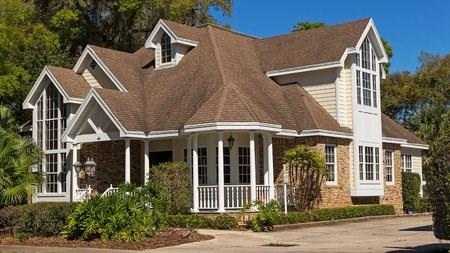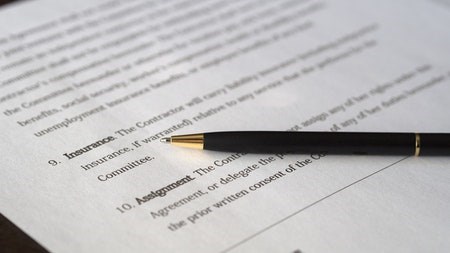Summer approaches, and so traditionally does South Africa’s annual rainfall frequency. As the effects of climate change become more evident, heavier storms are being experienced, which can have devastating consequences for your property, particularly if it is not maintained as it should be. This in turn impacts on your home owners insurance, which is required if you have a home loan.
Natasha Osman, Absa’s Head of Homeowner’s Insurance Cover explains that regardless of the season, the onus is on the home owner / policy holder to review their policy at least every six months. There are certain responsibilities for a home owner to note, when they receive their policy renewal annually.
‘Firstly a home owner must ensure that the updated policy conditions are read and understood, and secondly that the renewal terms including the sum insured and premium are relative to the current replacement value of the property insured. These are especially important if you have made changes to your property, therefore ensuring that the property has adequate insurance cover.’
Osman advises that the first check is always whether your personal details are accurate, which helps the insurer to continue to provide you with insightful information, tips and renewal terms. The next step is to ensure that the amount (sum) insured is truly reflective of the replacement value in the unfortunate event of a total loss. ‘It is not expected that insureds rush out and seek professional valuations, so Absa Insurance Company (AIC) presents, on the Absa website, a Replacement Value Calculator, which assists in checking the sum insured relative to the property size and its finishes. It is also one of the tools we send out with every home owners policy renewal pack, ‘ she says.
AIC also provides other tools and brochures to assist and guide policy holders in understanding their obligations and responsibilities. For example, a brochure is sent at inception of the policy as part of the welcome pack, and bearing in mind updates to regulations for example, a revised version is also provided annually to existing policy holders.
As mentioned, home maintenance obligations are clearly indicated in the brochure and in the policy renewal, and with the onset of summer, now is a good time, before the rains, to review the condition of your home. Osman emphasises however that home maintenance is more than just compliance. ‘We know that your house is more than just a building; it is a home where your greatest memories are made. That is why ensuring that your home is covered is important to us. In this light, Absa have complied a must-know home maintenance and insurance checklist to help you to safeguard your home against unexpected loss or damage.’
Summer maintenance Gutters:
• The insured needs to clean gutters. During winter gutters, drains and valleys can become clogged by leaves, which prevents water from flowing freely. Overflow can result in water entering the roof, causing internal damages to ceilings and other internal structures.
Roofs
• As temperatures fall and rise, metal roofs expand and contract, loosening screws and washers. These need replacement at least twice a year. Joins and laps between roof sheets also need to be resealed for protection against rust.
• Tiled or slate roofs are prone to loose or missing tiles. Ridge tiles should be secured and any cracked or missing tiles need to be repaired or replaced.
• Flat roofs need sealants checked on a regular basis.
• Thatched roofs need to be replaced every 10 to 20 years, depending on the weather and general roof wear and tear. It is important to install a lightning conductor and cover the thatch with fire protection liquid. Thatch also needs combing every two years.
Pools
• Pool maintenance includes the replacement of sand filters as often as is required, but generally at least once annually or bi-annually depending on pool size and climate).
• Pool lining should be checked frequently for cracks or bubbling as this is a sign that the fibre lining is starting to delaminate.
• Filter the pool for at least eight hours a day in summer.
Pipes and water outlets
• Check for bubbling paint internally and externally, as this is a clear sign of dampness caused by a leaking pipe or a rise in the underlying water table. This can also be caused by water ponding against a wall.
• Structural cracking may also be attributed to leaking pipes. Identifying these can prevent substantial damage to your property.
• Inspect your waste pipes and taps at least once a year to ensure they are properly sealed and watertight.
• Check exposed pipes for signs of rust or wear and tear, and address those issues immediately.
• Signs of mould or damage caused by mould require the use of professional services to identify the cause, and to rectify the problem.
‘Although these are considered ‘summer’ checks, they really should be ongoing along with other standard annual checks,’ says Osman. ‘If you really want to ensure a comprehensive home maintenance plan, you really should include other checks, which also have cost-savings.’
Annual maintenance
• The installation of a timer on your pool pump and geyser, or insulation of your geyser will save a significant amount of electricity. Set the geyser thermostat at 60°C, and no higher.
• Unplug unused appliances and chargers, as these still consume electricity says the Energy Saving Trust.
• Have a professional clean and sweep your chimney to remove blockages.
• Check windows and doors for deterioration.
• Regularly inspect windows and walls. Repair cracks or leaks as soon as possible to prevent further deterioration.
• Watch water consumption. If you see a sudden spike in your water bill usage, contract a plumber or the municipality to investigate. It may be as a result of an underground burst pipe or leak.
Implications of not undertaking home maintenance
Osman says that although insurers are unable to check maintenance on all properties insured, it is emphasised in the renewal correspondence that the home owner is responsible to ensure ongoing maintenance. ‘However, maintenance is not an insured peril, and therefore cannot be used to reduce premiums.’
‘What must be highlighted is that with age there will be some kind of deterioration to a building. Provided the building has been built according to building standards and the property is regularly maintained, the longevity of the property and structure will be less compromised. Gradual deterioration and wear and tear are more likely to occur on older properties and therefore regular maintenance is of utmost importance,’ concludes Osman.




